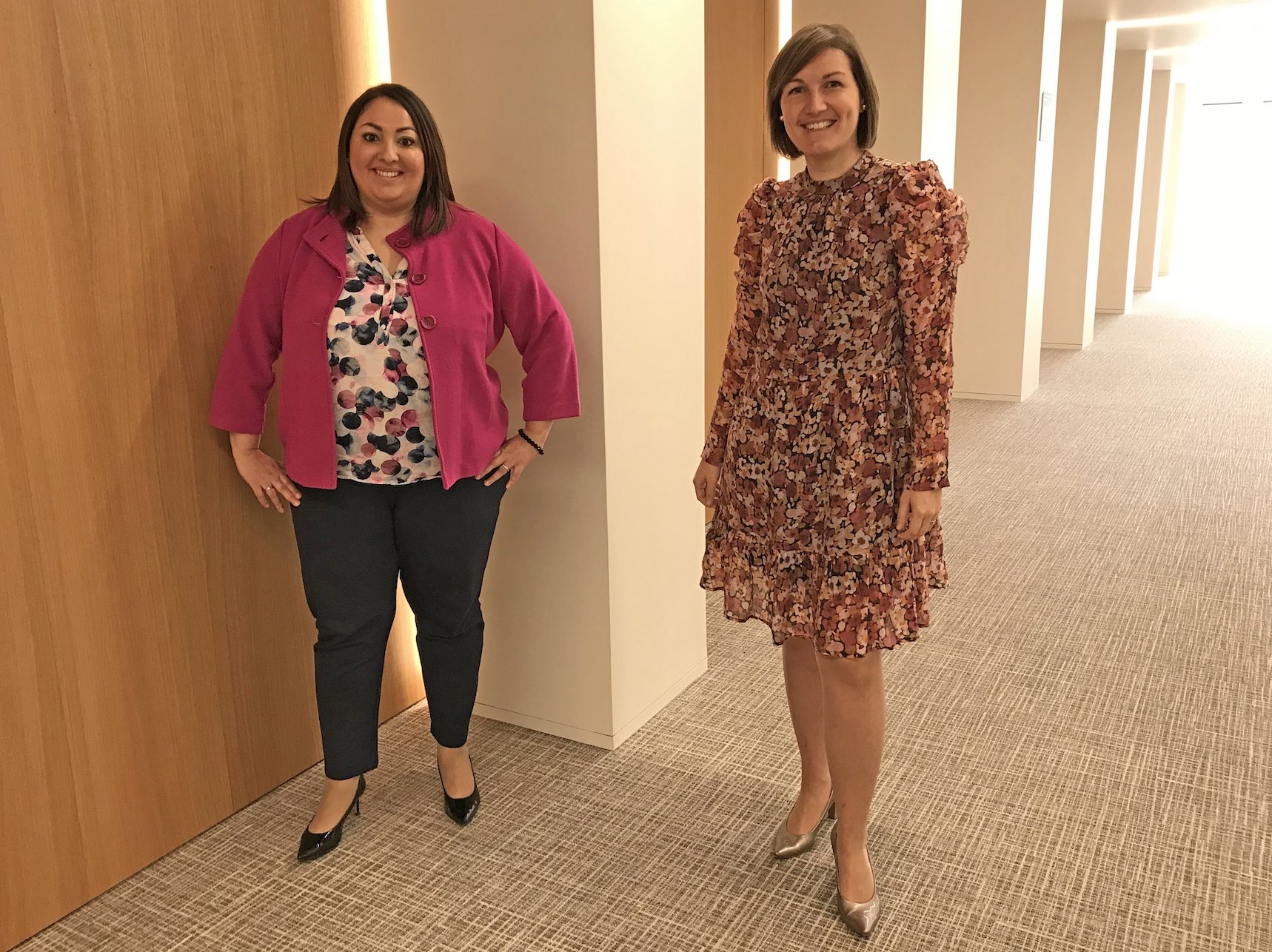How to keep employees motivated
Human resources (HR) departments are responsible for recruiting new staff. Not only do they have to attract the right candidates to their company, they also have to get them to stay. And this is one of the biggest challenges faced by HR. Salaries and financial perks are no longer enough, so how do you keep workers on board in today’s world? Find out in our interview with two HR specialists, Marie Duquesne, Senior Business Partner, and Latifa Toudma, Senior Development Officer in BIL’s People, Culture and Communication department.
To start with, please tell us what employees are looking for today besides an attractive financial package.
Latifa Toudma: If companies want to retain staff and keep them engaged, they need to offer them exciting career prospects and a positive working environment. What we’ve noticed is that financial compensation is not enough to keep employees committed in the long term. Inspiring, meaningful and caring leadership makes work fulfilling and creates trusting relationships, which in turn boosts teamwork.
Marie Duquesne: To that I’d add learning opportunities offered by the business, like training courses, or prospects for professional development or even internal job mobility. And employees want to be able to manage their working time in different ways, with flexible hours or part-time work to have a better work-life balance.
Managers are key to ensuring that staff remain motivated and engaged and to creating a culture of trust within teams.
What can you do to boost staff retention? Do you have any specific examples you can share?
Latifa Toudma: Managers are key to ensuring that staff remain motivated and engaged and to creating a culture of trust within teams. To help managers elevate their leadership skills, my colleagues and I in the People, Culture and Communication department have introduced a number of capacity-building programmes based around developing a growth mindset culture within teams, adopting good habits, giving constructive feedback, offering interesting assignments, to name a few.
We also help our staff enhance their professional skills throughout their career, with various technical or language training schemes. We help them develop, expand their profile and become aware of their strengths and weaknesses.
Marie Duquesne: For me, the key to strong teams is trust. Senior Business Partners are there to ensure regular contact with managers and employees in order to get to know them better and support them throughout their career. By fostering this ongoing dialogue, we can build a culture of trust and intervene where necessary. Our job is to guide staff and help them grow within the company by establishing – with input from them – what they need in terms of development, mobility, progression, and so on.
The younger generation are a new challenge. They have specific expectations that we have to incorporate into our models. And we cannot use the same management techniques as in the past.
Have you seen any changes over the years? As younger people enter the job market, how have their expectations changed compared with 5 or 10 years ago?
Latifa Toudma: The younger generation are a new challenge. They have specific expectations that we have to incorporate into our models. And we cannot use the same management techniques as in the past. Younger people need to understand their role and see the value they bring to the company. One major step we’ve taken has been to adapt our training sessions and shift towards gamification and simulations. These tools help our younger employees respect and better understand the various concepts at the bank while also picking up new skills.
They have a very different relationship with time too. If they get bored of their job, they can just leave the company overnight. And increasing their salary is not enough to keep them on board anymore. We have to change: we must give them recognition for their work more quickly, and they want feedback, interesting projects and a sense of direction.
Nowadays, a business’ vision is crucial for retaining staff.
Marie Duquesne: We’ve noticed that candidates’ questions in interviews have changed. Today they’re much more likely to ask about their future employer’s vision. Rather than the salary and what the job actually entails, they want to hear about opportunities to share knowledge and experience and to network. When younger people are choosing an employer, they’re looking for a sense of belonging and a collaborative environment.
We’ve also had questions about the company’s strategy and future plans. They have a keen sense of social and environmental responsibility and want to be proud to work for an organisation that shares their values. Nowadays, a business’ vision is crucial for retaining staff. These questions of direction were less important 5 or 10 years ago. And that’s why, as a business, we have to communicate more with employees on social and environmental issues. We have to be open, emphasise our commitments and promote our employer brand.
In what way has the pandemic changed how you motivate employees? How do you keep them engaged remotely and encourage them to get involved?
Latifa Toudma: Managers have had to develop new leadership approaches. We’ve organised sessions to help them with these new ways of working and provided tools to help them keep in touch with their teams. Organising regular virtual meetings to set goals, clearly defining everyone’s roles and holding one-on-one sessions to gauge employees’ morale are other ways of maintaining positive, trusting relationships with staff.
We’ve also set up more relaxed get-togethers so that employees stay engaged and positive during these difficult times. We run Friday video calls to celebrate the weekend, coffee breaks with colleagues from other departments and “feed your mind” sessions to give them the right tools for their future success.

The pandemic has shown us just how strong our staff are and how capable our organisation is of dusting itself off and moving forward.
Marie Duquesne: We’ve also tried to continue with certain celebrations to show staff that we’re always there for them, even though we aren’t all in the same building. Among other initiatives we’ve sent Christmas presents, shared music playlists and set up a Pinterest group to give parents craft ideas. These have created spaces for everyone to talk, to have fun together and feel a sense of belonging to the group.
The pandemic has sped everything up. It’s taught us new ways of working and showed us how we can adapt. But most of all, it’s shown us just how strong our staff are and how capable our organisation is of dusting itself off and moving forward.
With candidates’ expectation changing, what does recruitment look like in the future?
Latifa Toudma: For us, candidates’ technical skills are important for the business, but their personality and values are key factors when we’re recruiting them. When we’re selecting candidates in future, we’ll be looking for their collaborative teamwork skills, their desire to see the organisation grow or whether they’ll fit in with our business culture.
Marie Duquesne: Overall, I’d say that the biggest change is the notion that the company has to be attractive to candidates. Nowadays we have to position ourselves as a preferred employer and share our values and actions with our future staff in order to motivate them. We need to remember that while we may choose our candidates, from now on they’ll be choosing us too.


 Mortgage
Mortgage Personal loan
Personal loan Savings
Savings